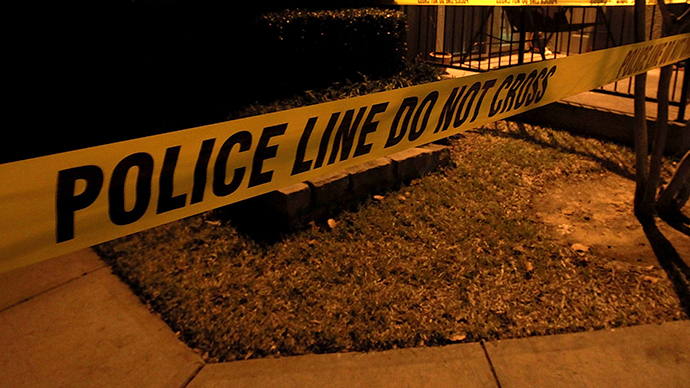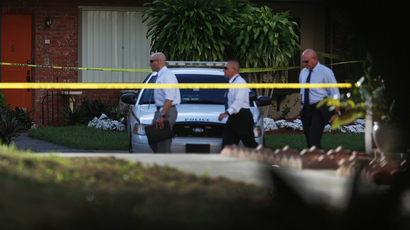Judge rules against ‘Stand Your Ground’ defense in cop shooting

A judge has ruled after a two-day hearing that a man charged with shooting a sheriff’s deputy in Escambia County, Florida will not be permitted to use the state’s Stand Your Ground law in an attempt to dismiss those charges.
Keenan Finkelstein, now 24, had sought to use the law to convince a jury that he was justified in shooting police Sergeant Shedrick Johnson in the leg near a home in West Florida on March 20, 2013.
Just before the shooting, a robbery victim had called the police to report that someone from a house nearby had stolen marijuana and a gun from his own residence. Police were looking for Jonathan Chappell, also 24, but as they converged on the home, only Finkelstein came out from the garage.
Sgt. Johnson came out from behind a tree and announced he was a police officer. At that point, police say, Finkelstein raised a gun and fired at Johnson, hitting the deputy in the leg.
In a two-day hearing this week, Finkelstein’s attorney argued that Johnson had not identified himself and Finkelstein had no choice but to act in self defense. Johnson survived the shooting.
Most US states have adopted at least some form of the law. In a general sense, it permits citizens to use deadly force in an event where doing so is necessary to prevent themselves from experiencing great bodily harm, sexual assault, or imminent death. Florida’s version of the law, which has been the subject of great controversy since the George Zimmerman/Trayvon Martin case, allows residents to use deadly force without first attempting to get out of harm’s way.
Florida Circuit Judge Terry Terrell denied Finkelstein’s motion on Friday, ruling that because he was aware the robbery had occurred, he had reasonable notice that police might arrive at the house searching for Chappell.
Judge Terrell went on to cite a stipulation in the Stand Your Ground law which makes it clear that Florida residents are not legally authorized to use deadly force in fear of bodily harm if they can reasonably assume that the other individual is a police officer.
Lawmakers across the US often debate whether to repeal, change, or otherwise update Stand Your Ground and similar laws.
Florida, a traditionally conservative state, has been a hotbed of disagreement over the issue, with protesters taking over the state's House at one point last year, demanding that the legislation be repealed entirely.
Last month, a key Florida legislative subcommittee voted to expand a National Rifle Association-supported bill that expanded the self defense regulation in the state. The “threatened use of force” bill proposes to authorize citizens to use deadly force if they feel there is even a threat of force.
Finkelstein is expected to stand trial beginning in early April.













